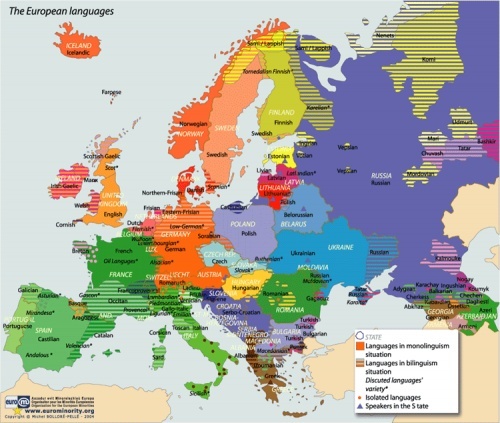
Unlike US counterparts buying US Treasuries, European banks will not use new money lent to them by the European Central Bank (ECB) to buy European sovereign debt according to today’s (December 19, 2011) article in the International Financial Review. The significance of all of this is that it may even further complicate and slowdown EU/Eurozone recovery. The US model for recovery as grudgingly slow and erratic as it has been, may not be available for the EU/Eurozone. The reason for the differences are several:
---There is significantly greater liquidity in US sovereign debt as the markets are deeper. Even during the downgrade of US debt by S&P, the market remained robust.Liquidity allows for more efficient sale as well as better prices if market conditions call upon banks to move toward more cash/capital positions.
---US sovereign debt may be perceived as higher quality than most EU sovereigns, and even the strongest Eurozone states as Germany have faced some lack of confidence. The rating downgrade by S&P has apparently largely been ignored by market pricing and volatility.
---The potential downgrade of EU/Eurozone countries remains outstanding. The US has already been downgraded by S&P with minimum consequences and an actual rise in US Treasury prices as there was a “flight to safety” or liquidity even if not necessarily to “quality.” The downside also for US debt is fairly defined – not cascading lower as might occur and has been happening with ratings of some EU/Eurozone states.
---US Treasuries can be held effectively as part of capital base by most US and other financial institutions and corporate treasuries. Similar treatment for EU/Eurozone sovereign debt may vary significantly depending on country and the other above factors.
---By directing European based banks to raise capital levels, Euro regulators in fact encouraged a sale of assets to bring ratios into line – it was mostly Euro debt that was sold into a buyers, perhaps panic market and at cheap discounts that many others, including hedge funds, exploited. Once burned, European banks will not venture back into such uncertainty. (Read: - “European Banks Shed Sovereign Debt” -
diplomaticallyincorrect.org/films/blog_post/european-banks-shed-sovereign-debt-by-ambassador-mo/41642
---As US banks, European counterparts have reduced also corporate lending presumably also to lower capital demands on their balance sheets. However, US banks nonetheless appear to have been more aggressive – while European banks are estimated to have lost 6% of their market share, US banks have almost by the same amount increased their slice of the corporate loan syndication market. (Read: -“Banking Continental Shift?” -
diplomaticallyincorrect.org/films/blog_post/banking-continental-shift-by-ambassador-mo/42200
The consequences for the more immediate recovery priorities for Europe are significant. More lasting and perhaps even more impacting will be confidence in state institutions within the EU and cross border confidence needed to keep the “European” project moving progressively. Language (Photo) may prove a lesser point of diversion than disparate economies linked by a common monetary policy and the ECB. Eurozone states as Germany and the Netherlands may do relatively OK, but most of the rest of the EU/Eurozone will suffer and the bonds that bind may be frayed as the stronger economies and both their public/private institutions fear the contamination and resist investment in the apparently weaker members of the European family. Read: -“Is Eurozone or US in Greater Financial Turmoil?” -
diplomaticallyincorrect.org/films/blog_post/is-eurozone-or-us-in-greater-financial-turmoil-by-ambassador-mo/41996
Link to International Financing Review -
www.ifre.com/banks-resist-european-pressure-to-buy-government-debt/1620695.article
By Ambassador Muhamed Sacirbey
Facebook – Become a Fan at “Diplomatically Incorrect”
Twitter – Follow us at DiplomaticallyX
International Financial Crisis Channel -
diplomaticallyincorrect.org/c/international-financial-crisis

